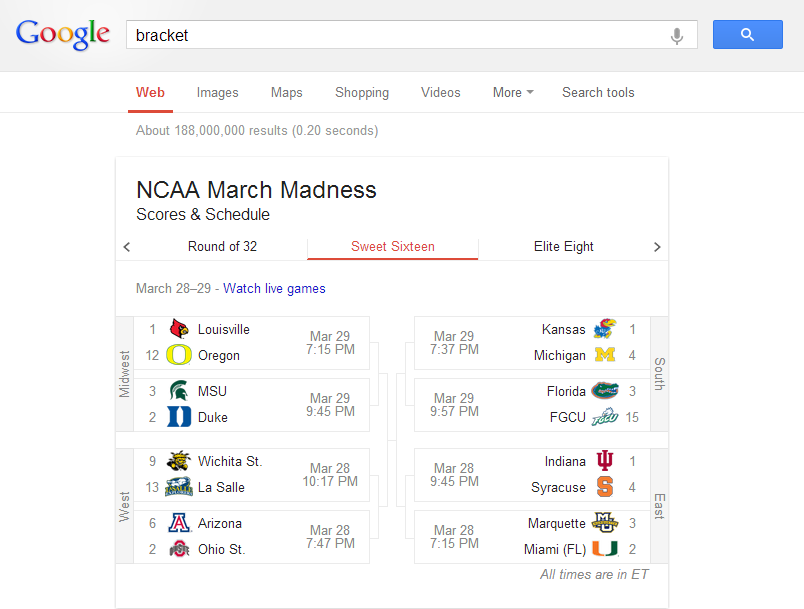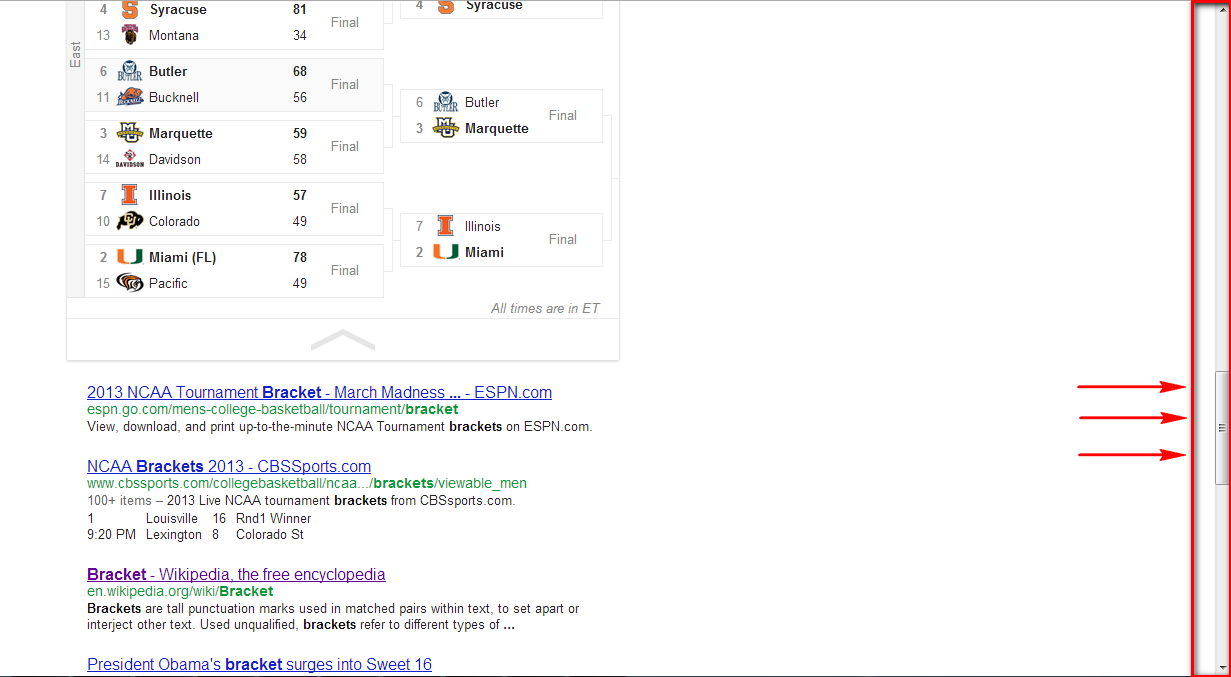If your company does big business selling automotive brackets, you might not be too happy with Google right now. On the other hand, if you’re one of the millions of people who spent hours (or minutes) filling out NCAA Men’s Basketball Tournament brackets, you may appreciate the internet giant’s most recent addition to blended search results.
Thanks to Google’s “answer cards,” sports fans have been able to quickly search for the score of the latest Patriots game or look up the Red Sox schedule for the coming week, with the results nested neatly at the top of the SERP. The search engine’s newest foray into this arena has embedded a fully interactive NCAA bracket into the top of the search results. All it takes is a quick search for “ncaa bracket“, “march madness“, “ncaa results“, “bracket” or any related query and users can completely bypass sports websites like ESPN, SB Nation or CBSSports.com, getting the information they’re looking for in approximately 0.17 seconds.

This interactive bracket is front and center in Google's search results. Organic listings appear beneath it.
Now those sports sites are likely still getting plenty of traffic from fans looking for a specific brand of coverage or some deeper analysis, but your co-worker who filled out her bracket based on teams with nice looking uniforms may not know where to go to find tournament results. So it’s off to Google, where the sites with the best SEO strategy are the first to be seen and most likely to be clicked on – or at least they would have been in 2012. Have you seen the size of this bracket? This weekend’s Sweet Sixteen round only features 8 games and still takes up everything above the fold. Navigate back to the first round and you’ll see all 32 games stacked vertically, taking up more real estate than the natural listings, now buried in endless scrolling. All the SEO in the world won’t get a casual basketball fan to scroll past that.
This is clearly the most extreme example of Google supplanting other websites with its own search answers, but it does represent a potential trend that marketers and content writers need to take into account. Searches for weather, sports scores and schedules, traffic and much more yield similar results and are reminiscent of various “cards” within Google’s highly successful mobile search assistant – Google Now. With various rumors surfacing in recent months about the possible development of a Chrome/desktop version of the app, the idea of a super customized search experience where Google actually delivers content on top of search results means that for certain industries, a #1 ranking might not mean as much as once did.
Instead, it might take more focused content to break through. If you’re the sports website, don’t just provide NCAA Tournament results, provide analysis, predictions and content that users can’t get anywhere else. Find a way to get through the clutter with specific content that people will seek out. Google has consistently preached that exceptional user experience and exceptional content are what it is looking for, and this move could help push some websites closer to that ideal.






